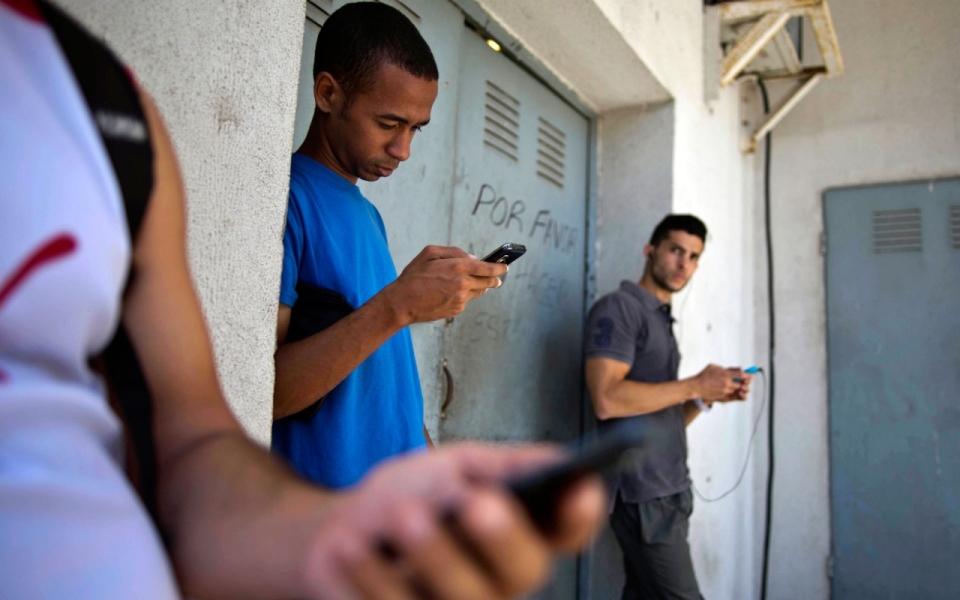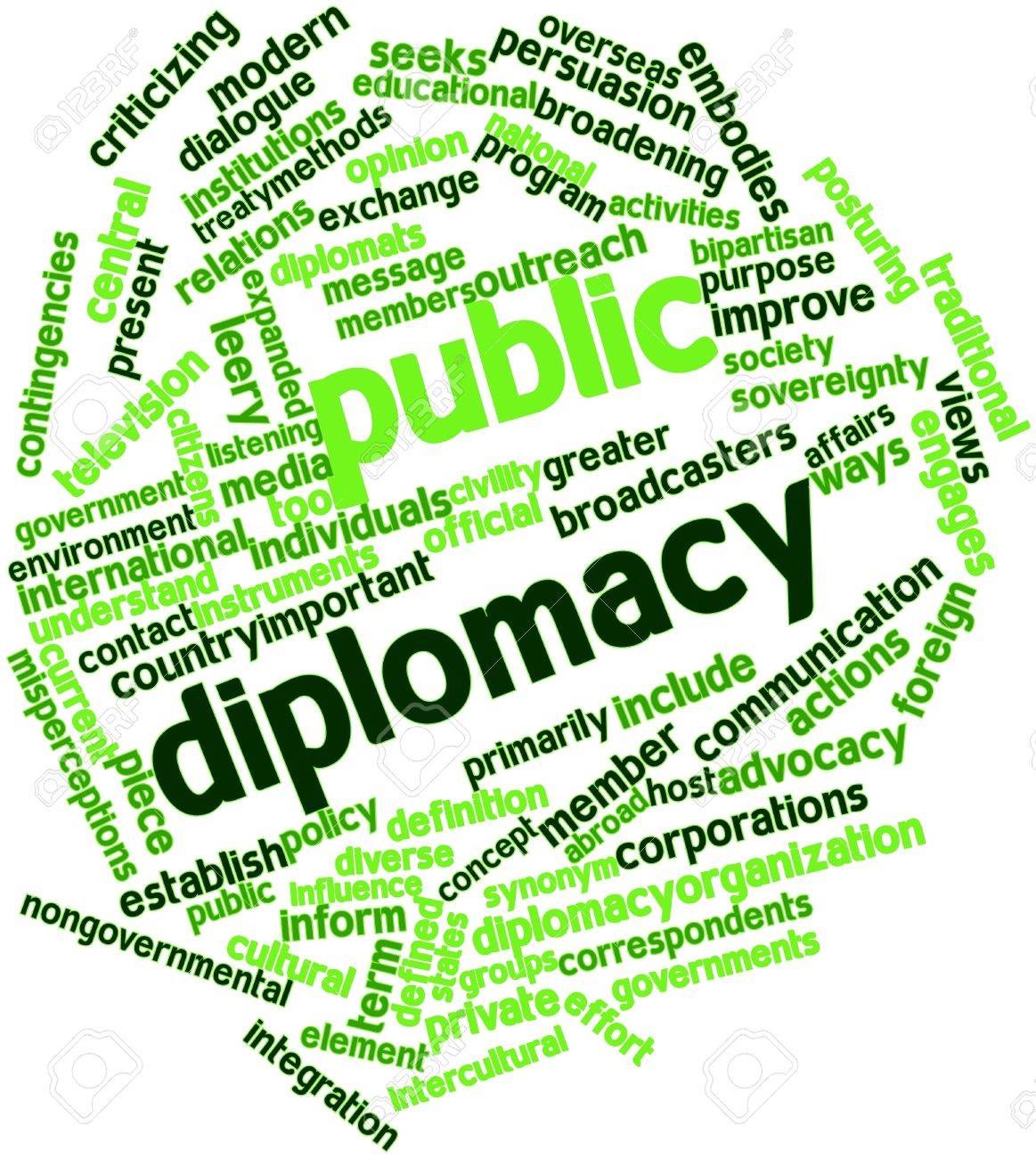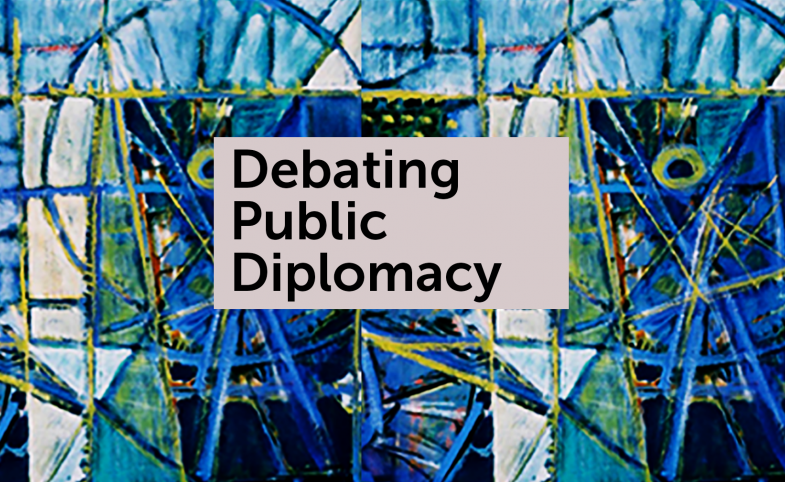 An eye-catching A.P. story, published Thursday, revealed that, in 2010, the United States Agency for International Development (U.S.A.I.D.) covertly deployed a social-media program in Cuba in the hope of bringing about a Cuban Spring. The network, called ZunZuneo, was offered to Cubans via the country’s mobile-phone network as a free text service, and attracted forty thousand subscribers before mysteriously ending operations in 2012. The contractors who ran the program are said to have concealed its U.S.-government origins via an offshore system of front companies and foreign servers, and to have collected data on subscribers’ “political tendencies” and “receptiveness,” among other useful information. The White House press secretary, Jay Carney, declared that ZunZuneo was a “neither covert nor an intelligence program,” preferring instead to call it a “discreet” form of humanitarian assistance to Cubans who lived in a “non-permissive environment.”This kind of bald-faced disingenuousness is risible. Whatever it is labelled, there seems to be little doubt that ZunZuneo functioned as a secret intelligence operation aimed ultimately at subversion. The A.P. reported that one of the aims of the program was to help foster a resistance that could stage “smart mobs” to protest Castro’s rule.
An eye-catching A.P. story, published Thursday, revealed that, in 2010, the United States Agency for International Development (U.S.A.I.D.) covertly deployed a social-media program in Cuba in the hope of bringing about a Cuban Spring. The network, called ZunZuneo, was offered to Cubans via the country’s mobile-phone network as a free text service, and attracted forty thousand subscribers before mysteriously ending operations in 2012. The contractors who ran the program are said to have concealed its U.S.-government origins via an offshore system of front companies and foreign servers, and to have collected data on subscribers’ “political tendencies” and “receptiveness,” among other useful information. The White House press secretary, Jay Carney, declared that ZunZuneo was a “neither covert nor an intelligence program,” preferring instead to call it a “discreet” form of humanitarian assistance to Cubans who lived in a “non-permissive environment.”This kind of bald-faced disingenuousness is risible. Whatever it is labelled, there seems to be little doubt that ZunZuneo functioned as a secret intelligence operation aimed ultimately at subversion. The A.P. reported that one of the aims of the program was to help foster a resistance that could stage “smart mobs” to protest Castro’s rule.
That U.S.A.I.D. is now being used for such purposes is not in itself a surprising thing, nor even necessarily a breach of its charter. U.S.A.I.D. was conceived during the Kennedy Administration as a civic-action bolster to the C.I.A.’s underground activities abroad, and in the intervening years some U.S.A.I.D. programs have kept one foot in the shadows. Alan Gross, a U.S.A.I.D. subcontractor who brought in network-communications equipment for political dissidents, has been in jail in Cuba since 2009.
Quite apart from the rights or wrongs of the U.S. government using commercial social media for espionage or to organize political subversion in Cuba, the case presents another troubling issue: ZunZuneo was being run through a private operator, a firm called Mobile Accord, that had won a financial contract from the U.S. government. This is consistent with a growing pattern in recent years, in which implementation of the most sensitive aspects of American security policy is increasingly handed over to contractors who are working for money, not necessarily for philosophical or even patriotic reasons. The mercenary firm Blackwater, renamed XE and then Academi (after earning notoriety in the killing of seventeen Iraqis in Baghdad’s Nisour Square, in 2007), has effectively become an action arm of the C.I.A., its personnel loading the missiles on the drones that are fired at presumed terrorists based on White House decisions. Clearly, there are risks to this ever-expanding outsourcing. That outraged patriot who divulged the N.S.A.’s secrets was first a C.I.A. contractor and then an N.S.A. contractor.
Authoritarians around the world are likely to point to the latest revelation as proof that social networks are points of infiltration. Episodes like ZunZuneo will only make the Cuban security state more paranoid and more fearful of opening up, and the losers will be the Cuban people. The timing is especially unfortunate: Raúl Castro has begun to open up Cuba, economically if not yet politically, and has also eased up on some of his country’s dissidents. In many ways, from immigration to anti-narcotics operations, the U.S. and Cuba have been resolving many of their differences, quietly, for several years. There are now numerous regular flights between the U.S. and Cuba, allowing tens of thousands of Cubans to travel back and forth, and to send remittances, too; the U.S. trade embargo has been steadily softened so that food and medicine can be exported to Cuba. With all of this going on, why the focus on smart mobs?
Four decades ago, the C.I.A. launched a program in Chile to undermine that country’s President, the recently elected Socialist politician Salvador Allende. Part of the covert program included using the country’s main newspaper, El Mercurio, as a platform to besmirch Allende’s reputation and build opposition to his government. It worked. The C.I.A. also plotted with conspirators within Chile’s security forces. In September, 1973, amid gathering chaos, they made their move, going so far as to attack the Presidential palace to force Allende’s resignation. He committed suicide. Allende was replaced by General Augusto Pinochet and his right-wing dictatorship, and in the period that followed several thousand people died violently, from torture, summary execution, or both. In the Cold War logic of the day, all of this was seen as worthwhile, somehow, because Chile’s takedown represented a blow to the spread of global Communism. Within the ranks of the C.I.A., the role El Mercurio played in helping bring about this state of affairs was regarded as a great success.
If ZunZuneo was meant to be today’s El Mercurio, what does that say about the evolution of U.S. foreign policy? The so-called Cuban Twitter is a step up from the darker and more absurd plottings of yesteryear, including C.I.A. schemes to kill Fidel Castro with exploding cigars or poisoned milkshakes, or to make his uniform disintegrate during one of his marathon speeches, leaving him naked in front of the crowds. But only just. Smart mobs—and then what? Was there a Cuban aftermath plan, if ZunZuneo had helped bring about what had eluded ten separate U.S. Administrations? Which private U.S. company would get the contract for that?
Photograph: Franklin Reyes/A.P.








